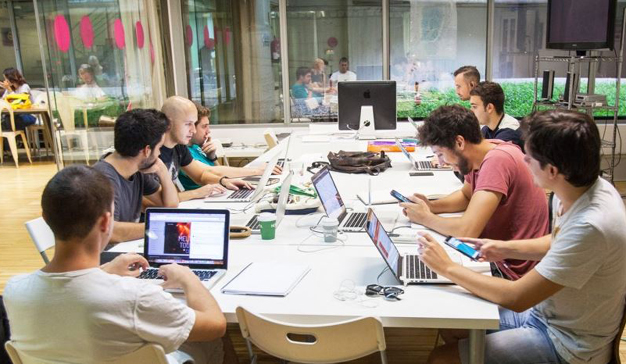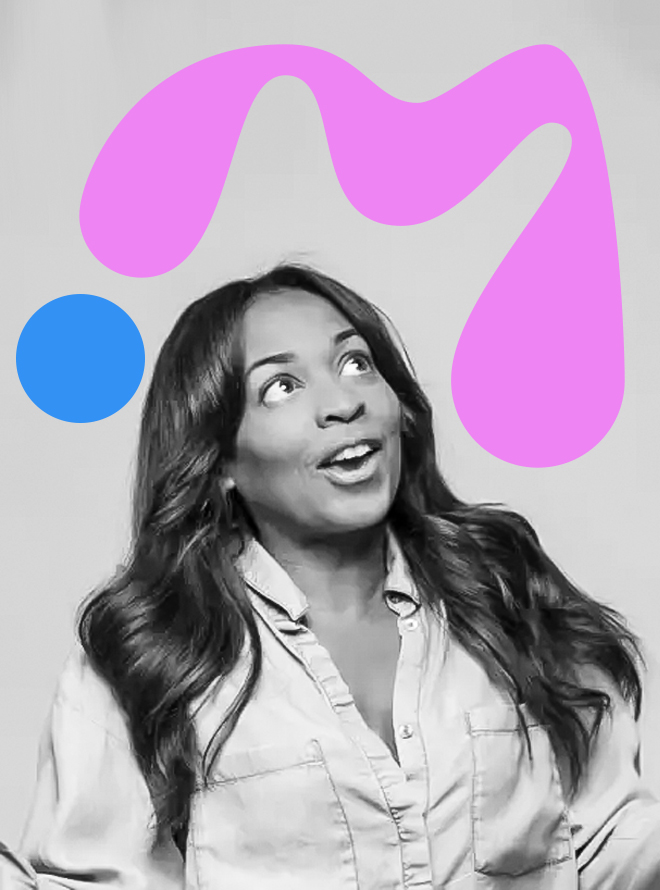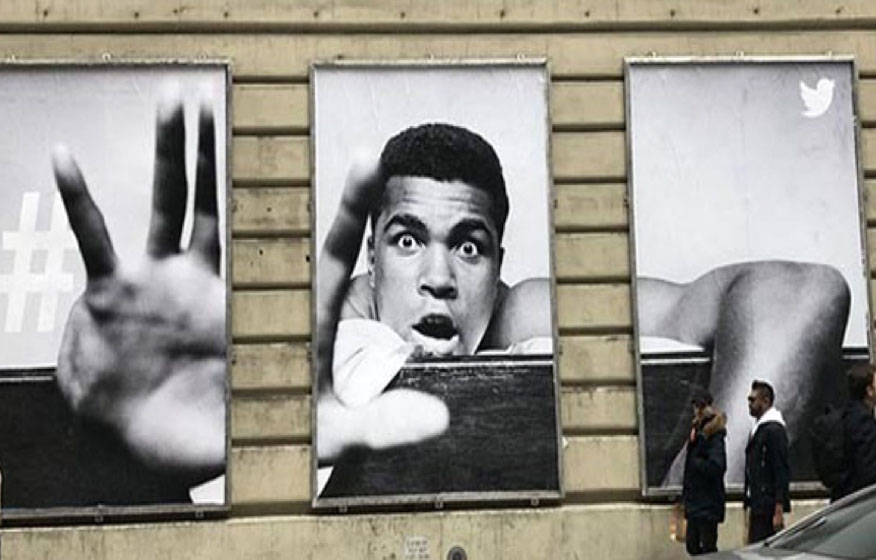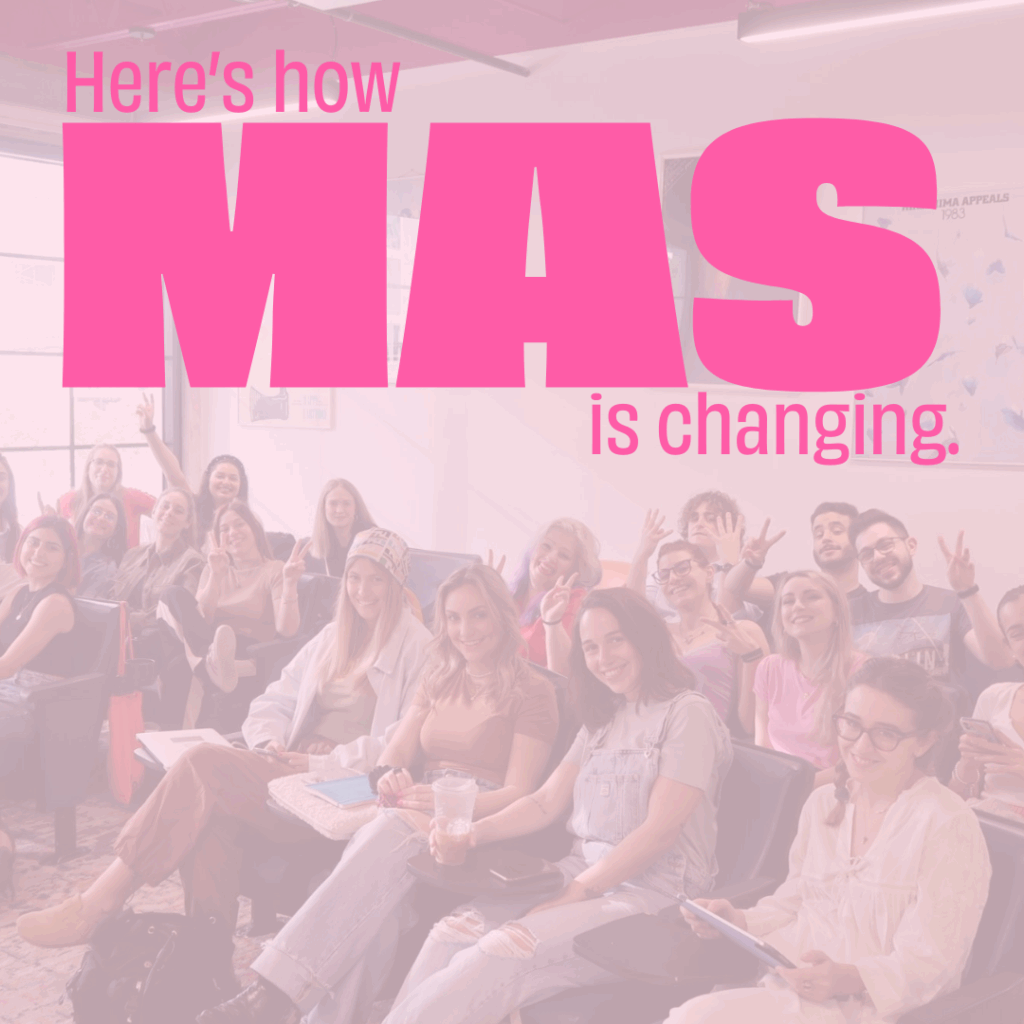How to Become a Professional COPYWRITER
in 2025
The ultimate guide: everything you need to know about building a career in copywriting (how to make money AND a difference).

Keep it flexible. Experience the joy of working in different environments, different roles, and with new people all the time.
Be in demand. Copywriting is consistently one of the most sought-after creative talents...because great companies know that their voice and brand are precious.
Share your work. Copywriting means that the work you do is both visible and highly shareable. Your successes will be celebrated both within your organization (if you choose to join one) and, if you so choose, by your social circle as well.
The joy of collaboration. While the role of an Art Director involves some managerial responsibilities, anyone who thinks of themselves as the creative head honcho is doomed for failure (or at least a stiff talking to from the CD). This is because Art Directors are just one half of a creative team that works to turn ideas into reality. Working hand-in-hand with Copywriters— as well as Strategists, Account Executives, Media Buyers, and more.
Share your whole self. Copywriting is about communication. Communication is about authenticity. The best copywriters tap into their own lived experiences (as well as their empathy for others) to produce work that speaks to people from the heart.
Make that cash. At the end of the day, a career can be fun, fulfilling, creative, etc...but if it isn't bringing in the cheddar, who is one to pay the rent? Good news: copywriters. Entry-level jobs pay more than many other careers...and the best-of-the-best are taking home C-suite-level paychecks.
Great copywriters aren’t just great writers: they’re storytellers, they’re persuaders, they’re salespeople (in the best sense of the term), and they have a near-inexhaustible enthusiasm for playing with language.
Believe it or not, your ability to make your friends laugh with clever Instagram captions could mean you’re cut out for a career in Copywriting. If you have a knack for storytelling and the ability to express ideas through words, you could spend your 9 to 5 helping brands convey their message — and get paid for it.
A Day in the Life of a Copywriter



Why Be A Copywriter?

Opportunities
Storytelling is at the heart of all communication. Advertising agencies and brands need copywriters who understand people and culture. Who can tell stories in six-second videos, blog posts, tweets and, documentaries.

Freedom
Throw yourself into your first paragraph. Make it perfect. Play your favorite Mozart concerto as loud as possible. Choose every word carefully. Make every sentence magnificent. Transitions smooth and clever. Have another glass of red wine. Go back to the keyboard in a fervor. Let your fingers fly. Forget spellcheck for the moment, just keep hitting those keys as fast as the ideas pop up in your wired brain. This is your story and it’s just what the world has been waiting for!

Difference
Copywriters guide the branding and storytelling for some of the biggest, most impactful organizations in the world. You’ll work with other brilliant, off-beat minds to tell beautiful, outrageous, incredible stories.

The Career of a Copywriter
As a copywriter, new experiences are par for the course.
In the same week you might write a video series for YouTube, strategize a campaign with an art director and present your new product idea, a donut shaped burger, to BurgerKing’s global marketing director. He loves it! Your idea gets produced. Your mom sees it on CNN and Fox News. You go to an award show in France (all expenses paid) and you win a big award. (True story!)
As far a career ladder
copywriter actually wears a lot of different heads, one day, it could be writing this script for a digital commercial.
00:24:04
Or the next day, it could just be shooting out ideas and putting ideas into ahead, sometimes we’re a strategist we’re getting deep into the brief and figuring out the best way to solve a problem for the client and also bringing some emotion.
00:24:21
there’s a variety of things sometimes i’m a game maker sometimes i’m trying to figure out a game that you can play to really interact with the car and experience what it’s like to drive a Toyota.
Here are just a few examples:
- Major tech companies (think Apple, Tesla, or Instagram)
- Leading creative agencies (Ogilvy, McCann, and R/GA come to mind)
- Consumer brands with a focus on communication (Nike, Disney, Coke, and more)
- Freelancing (with all the freedom, headaches, and excitement that come with it)
No matter the path, one thing is for sure: it’s a world of wild opportunity. So long as there is marketing (read: as long as people exist) there will be room for copywriters and the storytelling mastery they demonstrate. Today the biggest and brightest jobs might be in silicon valley. Tomorrow? Who knows? All we can say is that the job market for these creative superstars is constantly growing.
How Much Do Copywriters Make?
According to Glassdoor, the average base pay for a US-based Copywriter in 2021 is $57,799.
Of course, as with any other profession, that number is dependent on a number of factors—not least of which is where you choose to work.
For example, Copywriters at major tech companies (like Facebook or Apple) can often bring home something closer to $200,000 /per year.

The Skills Any Copywriter Needs
Copywriting is a calling that demands a mastery of myriad skills. Here are a few:
Skill | Description | Why it's essential |
Ruthless Editing | It's often the editing process that whittles broad ideas down into nuggets of wit and wisdom. You need to cut away the parts that are obvious, that are cliche, that aren't directly contributing to the message. A fledgling writer would be wise to take those words to heart. The second draft should be at least 10% shorter than the first. Remove the redunant...and find the diamond in the rough. | Remember: creative projects are a team exercise. And a copywriter isn't an author. It's not only your creative vision that matters...it's the input of the client, the insights of your team, and a whole host of other factors. In a perfect world, all those influences will come together to produce work that's better than what any single writer could have produced alone. |
Working With a Team | Knowing when to lead and when to step back. Collaborating with other creative professionals to maximize the talents of everybody on the team. | The myth of the lone genius is just that—a myth. The best creatives play well with others. |
An Eye for Detail | Spot the difference between two color swatches. Never miss a typo. See the nuances of the logo placement on that latest website overhaul... | As leader of a creative team, the buck tends to stop with the AD. Of course, they don’t need to do everything themselves. But they should be noticing things that no one else is. That’s how you know they’re on their game. |
Pitching | It takes finesse, charisma, and a fair bit of agility to bring others on board to your way of thinking. A good copywriter doesn't just come up with fantastic ideas...they also know how to share those with others. | An idea is just an idea until a group of people agree to take it on. And the very best ideas often come across as radical at best (or stupid at worst). For any idea to come to fruition, the copywriter will need to get other people invested. |
The Art of Great Headlines | Authenticity and practice are the pillars to a great headline. Your style, your research and your word choice all contribute the how authentic to your brand and your consumer the headlines read. Practice helps you dissect the good from the bad. | “When you have written your headline, you have spent eighty cents out of your dollar.” That quote by ad legend, David Ogilvy, still rings true. Headlines will make or break your ad. Today’s world is saturated with ads that look, sound and feel generic. A great headline will hook you and lure you to read the rest of the ad. |
Handling Criticism | Does it hurt to hear that your idea is both wrong and bad? If you’re looking to be a copywriter, you’ll have to stiffen that upper lip... | There’s a sweet spot when it comes to hearing critiques: you’ll need to keep your ego intact, without ignoring the feedback. If you can take advice without losing your cool, you’ll be well on the way to superstardom. |
Media Literacy | Do you keep up to date with the latest Netflix offerings, gaming trends, Spotify playlists, and culture-defining podcasts? You may not need to read/watch/hear it all...but you should know what’s going on. | Copywriters are professional communicators. And nothing makes communication easier than speaking the same language as your audience. As humans, we're wired to reject the unfamiliar. Great writers understand that. By harnessing the popular culture of the moment, familiar symbols and figures and phrasing, copywriters make foreign concepts accessible and exciting to new readers. Just be careful not to overdo it with the appeal to whatever's current. Nothing is as cringe-worthy as a brand's clumsy attempts to communicate with "the youth" |
Real Research | Research can be the foundation for some serious creativity. To paraphrase some advice from better writers: you can't step outside the status quo if you don't know what it is. You need to know the rules in order to break them. | If you don’t know what you’re writing about, how can you sell it? Research makes your writing better. The more you know about your brand, the easier it is for you to write for it in a meaningful and authentic way. If your ideas and words are rooted in truth, they will resonate with your target. There’s nothing worse than ad that feels out of place. |
Empathy and User Experience Design | Writing a blog post (like this one)? Big blocks of text are only going to put off your poor, eye-strained readers, and limit your audience. Writing an email? It helps to draw on your own experience with a full inbox. When a brand uses cheap clickbait to boost their open rates, does it connect with you? Likely not. But chances are you've seen examples of emails that made your own writer's brain tickle with joy. Use that. | These days, any piece of writing is likely to be consumer in a myriad of ways. A great writer should be ready to alter their methods of communication to suit the situation at hand. |
Broad Marketing Knowledge | We live in a world that deeply values specialization. As a writer, this is your chance to buck the trend. You know what makes a hiring manager's ears perk up? When the prospective copywriter understands and works with audience analytics. Or the intricacies of Facebook's content policy. Or branding. Or... The point is, broad knowledge is an asset. | As a copywriter, you'll become a core piece of a creative team. You'll consistently be asked to work closely with your Art Director, of course, but also with designers, strategists, social managers, and the like. The more you know about their world, the smaller the communication gap will be. As any creative knows, communication is half the battle. Breaking down the silos of specialization and jargon can work wonders for a creative project. A copywriter with some understanding of what's happening in the digital designer's world, or why certain decisions are being made by the strategic team, can help provide invaluable insight. As in politics, it's often those who can reach across the aisle who have the most creative solutions. |

How Do I Make The Big Time?
While they may not be writing the great American novel, writing is a big part of a copywriter’s role. At its very core, a copywriter is someone who writes the text of advertisements or other marketing materials. In short, they’re the ones behind the text, or rather “copy,” you see on print ads, billboards, websites, and more.
Though writing is the main responsibility of copywriters, it isn’t what most copywriters actually end up doing all day. In fact, a lot of a copywriter’s time is spent researching, ideating, proofreading, editing, formatting, pitching, sometimes stress-eating, and a lot of other mundane tasks. Because copywriters work as a team with art directors, they ultimately help contribute to the overall look and feel of a campaign, meaning their responsibilities don’t just end with the tagline. Put simply, a copywriter’s main job is storytelling.

Where Should You Study Copywriting?
Which Copywriting Program Is Right For You?
Choosing a copywriting program is a question of circumstance. Depending on where you are in your career and in your life, one program may suit you better than the others. Of course, like a well-tailored jacket, the program should fit you well. Take a look at our offerings to see how the timelines and expectations can vary.


With the enormous growth of brands having in-house marketing departments that create their own content, having both a portfolio AND a masters degree is a tremendous advantage. To that end, we partner with accredited universities to offer Master’s degrees.The result is a joint program—the university grants the degree while students develop their portfolios and a network of industry contacts with MAS.
JOIN THE CREATIVE NETWORK
Add yourself to the list of 60,000 creatives getting the weekly Miami Ad School newsletter.



